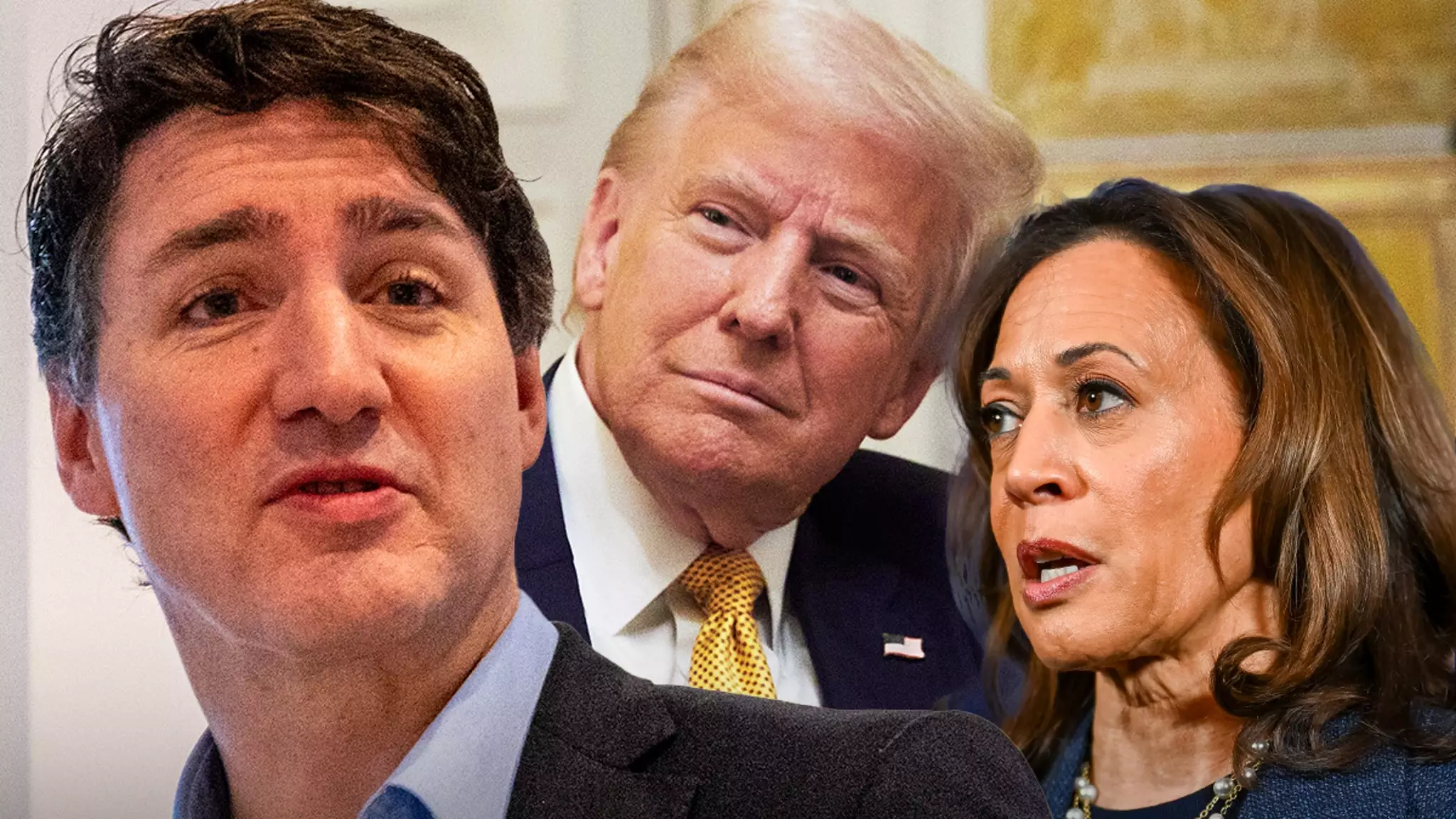In a recent address at an event hosted by the Equal Voice Foundation, Canadian Prime Minister Justin Trudeau offered pointed commentary on the state of women’s rights, particularly in light of the recent U.S. elections. His remarks, which criticized the political climate under Donald Trump while elevating the potential impact of Kamala Harris, reveal a complex interplay of international relations, gender equality discourse, and personal ideology. This moment serves as a significant touchstone for analyzing both Trudeau’s position as a self-proclaimed feminist leader and the broader implications of political alignment in the fight for women’s rights.
Trudeau’s declaration of support for Kamala Harris over Trump underscores his commitment to advancing feminism within political discourse. By contrasting Harris’s potential influence with Trump’s presidency, he positions himself not only as an ally but also as a critic of what he sees as regressive policies regarding women’s rights. This framing of women’s progress implies that the election of a male leader with a history of downplaying or outright dismissing women’s issues represents a setback for the feminist movement. His assertion that women’s rights were meant to progressively improve—despite the hiccups—reflects a broader sentiment within feminist circles that views political representation as crucial to substantive policy change.
However, Trudeau’s comments do not exist in a vacuum. His criticism is compounded by the reality that Trump garnered significant support from women voters, a demographic that was anticipated to reject him more emphatically. This reality presents a dichotomy: while Trudeau attempts to portray a straightforward narrative of feminist progress, the data indicates a more nuanced electorate. The support Trump received reveals fractures within the female voting bloc, challenging the simplicity of Trudeau’s implications and the effectiveness of his rhetoric. Ignoring these complexities risks alienating potential allies within the feminist movement who may not align with his perspectives.
Trudeau’s sharp critique also reflects the delicate nature of Canadian-American relations. With the necessity of cooperation between the two leaders over the coming years, his veiled shots at Trump hint at underlying tensions. The relationship is marred by Trump’s past comments, suggesting a deep-rooted animosity that complicates diplomatic discourse. As Trudeau navigates this terrain, his emphasis on women’s rights serves both as a rallying cry for Canadian progressivism and a subtle reproach to Trump’s administration. This dual function complicates the understanding of his role as a leader; it suggests that expressing feminist ideals cannot be divorced from strategic political considerations.
Trudeau’s remarks are emblematic of the ongoing debate surrounding gender equality in governance and international politics. While he firmly positions himself as a champion of women’s rights, the realities of political dynamics, especially in the context of gender, present challenges that cannot be overlooked. As observers and advocates of women’s rights seek to chart a course forward, Trudeau’s words serve as a reminder that progress is often nonlinear and fraught with negotiation and compromise, making the dialogue around feminism in politics both vital and intricate.

Leave a Reply